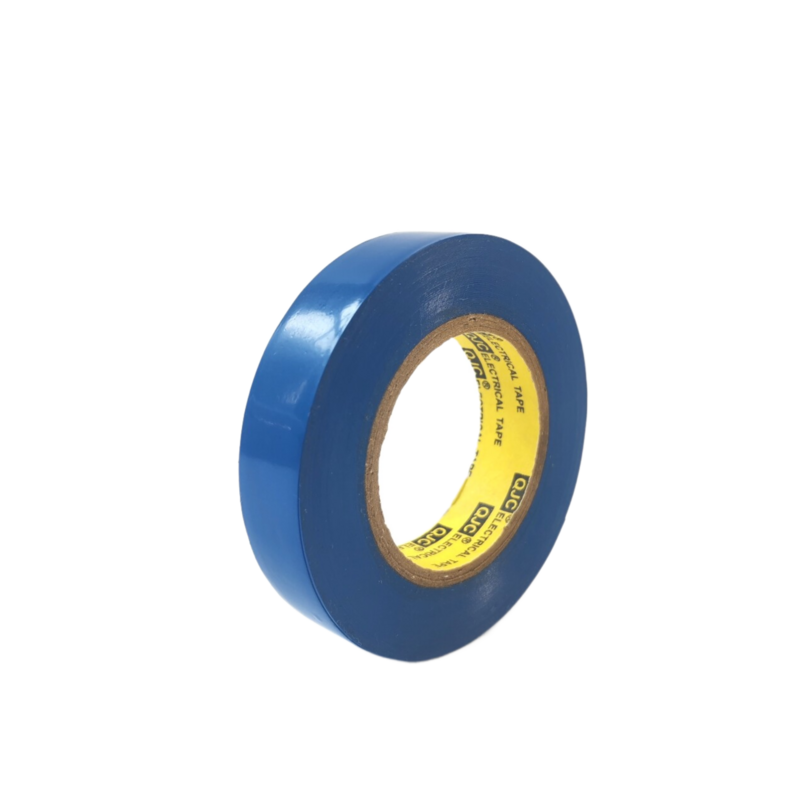Understanding PVC Tape Insulation A Comprehensive Guide
PVC (Polyvinyl Chloride) tape, also known as electrical insulation tape, is an essential tool in various industries, including electrical, construction, and plumbing. Its popularity stems from its excellent insulation properties, durability, and versatility. This article delves into the features, applications, and advantages of PVC tape insulation, providing a thorough understanding of its significance in both professional and DIY settings.
What is PVC Tape Insulation?
PVC tape insulation is a type of adhesive tape made from a flexible, plasticized material that provides effective electrical insulation. The tape is coated with a strong adhesive on one side, allowing it to adhere securely to a variety of surfaces. Its primary function is to insulate electrical wires and connections, ensuring safety and preventing short circuits. PVC insulation tape comes in various colors, which can be used to indicate the type of wiring or to distinguish between different circuits.
Key Features
1. Electrical Insulation One of the primary characteristics of PVC tape is its ability to prevent electrical conductivity. This property makes it suitable for insulating exposed wires and protecting them from moisture and environmental factors.
2. Durability PVC tape is resistant to wear and tear, making it ideal for long-term use in both indoor and outdoor applications. It can withstand extreme temperatures and harsh weather conditions, ensuring reliable performance over time.
3. Flexibility The tape's flexible nature allows it to conform to various shapes and surfaces, ensuring a secure and tight fit. This flexibility is particularly useful when wrapping around wires or irregularly shaped objects.
4. Ease of Use PVC tape is easy to apply and can be torn by hand, eliminating the need for special cutting tools. It adheres instantly to surfaces and can be removed without leaving a sticky residue, making it user-friendly for both professionals and amateurs.
Applications
PVC tape insulation finds applications in multiple fields
pvc tape insulation

1. Electrical Work It is primarily used to insulate electrical wires and connections. By protecting wires from moisture, dust, and physical damage, PVC tape helps to prevent electrical failures and enhances safety.
2. Automotive Industry In automotive applications, PVC tape is used to insulate and protect wiring harnesses. Its durability ensures that it can withstand the vibrations and conditions commonly found in vehicles.
3. Construction and HVAC PVC tape is also used in construction and HVAC applications to seal ductwork and pipes. It helps to improve energy efficiency by preventing air leaks and maintaining temperature control.
4. DIY Projects PVC tape is a favorite among DIY enthusiasts for various home improvement projects. Its versatility makes it ideal for temporary repairs, organizing cables, and even crafting.
Advantages
The advantages of using PVC tape insulation are significant
- Cost-Effective Compared to other insulation materials, PVC tape is relatively inexpensive, making it a cost-effective option for a wide range of applications. - Variety of Colors The availability of different colors allows for easy identification of electrical circuits, enhancing safety and organization.
- Environmentally Friendly Options Some manufacturers produce eco-friendly PVC tape with reduced environmental impact, catering to environmentally conscious consumers.
Conclusion
In conclusion, PVC tape insulation is an invaluable tool in both professional and DIY settings. Its excellent electrical insulation properties, coupled with durability and ease of use, make it suitable for a multitude of applications. Whether you're an electrician, builder, or just someone looking to tackle a home improvement project, understanding the benefits and uses of PVC tape insulation can help you achieve safer and more efficient results. Investing in high-quality PVC tape is a smart choice that will serve you well in various tasks, ensuring safety and reliability every step of the way.
-
XIANGFAN Rubber Tape-Ultimate Solutions for All Your Insulation NeedsNewsJun.24,2025
-
XIANGFAN Rubber Tape-Protection for Industrial and Residential ApplicationsNewsJun.24,2025
-
XIANGFAN Rubber Tape: Superior Safety and Sealing for Demanding EnvironmentsNewsJun.24,2025
-
XIANGFAN Rubber Tape: Reliable Solutions for Every Electrical ChallengeNewsJun.24,2025
-
XIANGFAN Electrical & Industrial Tape: Powering Reliability Across IndustriesNewsJun.24,2025
-
XIANGFAN Electrical & Industrial Tape: Excellence in Every ApplicationNewsJun.24,2025
